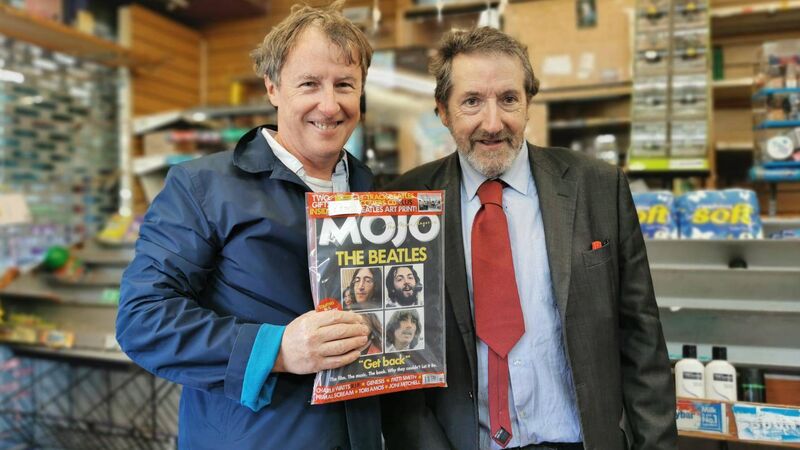Tom Dunne's Music & Me: Our favourite shop offered a glimpse into another world

Tom Dunne with John Hyland at his shop in Dún Laoghaire.
My local corner shop is closing and taking with it its proprietor, John Hyland. A newspaper vendor to you, a minor god to me. He is one of my last connections to a world that no longer exists, a lost Amazonian surrounded not by rainforest but newspapers and magazines.
Its closure hastens my development into one of those who give directions via landmarks that don’t exist anymore. My dad was the master of this.





